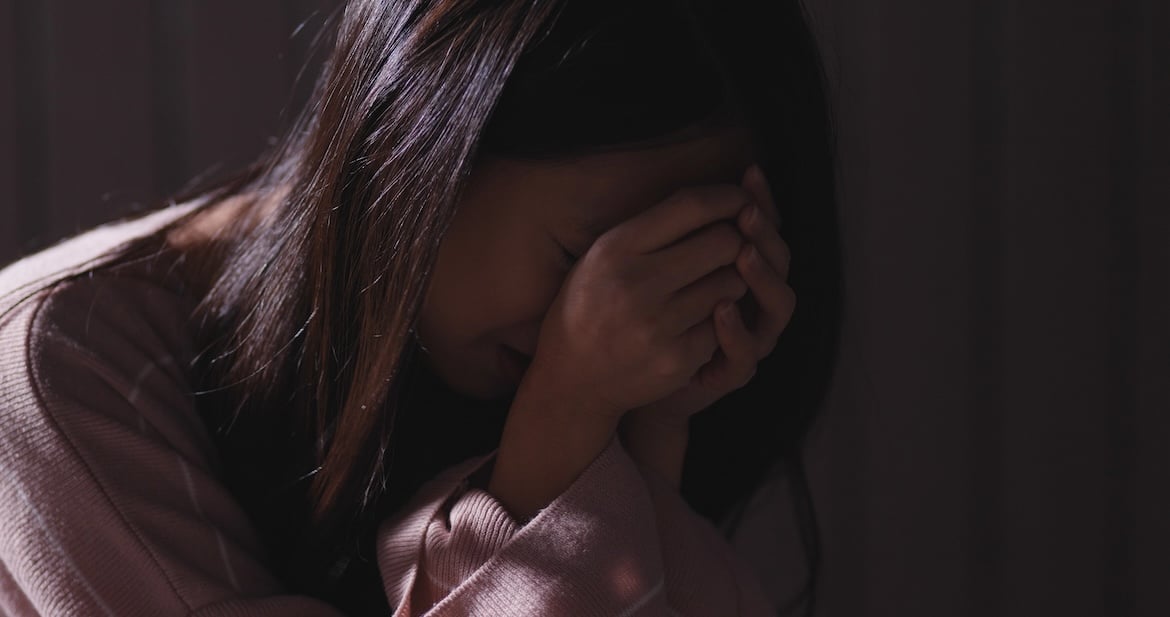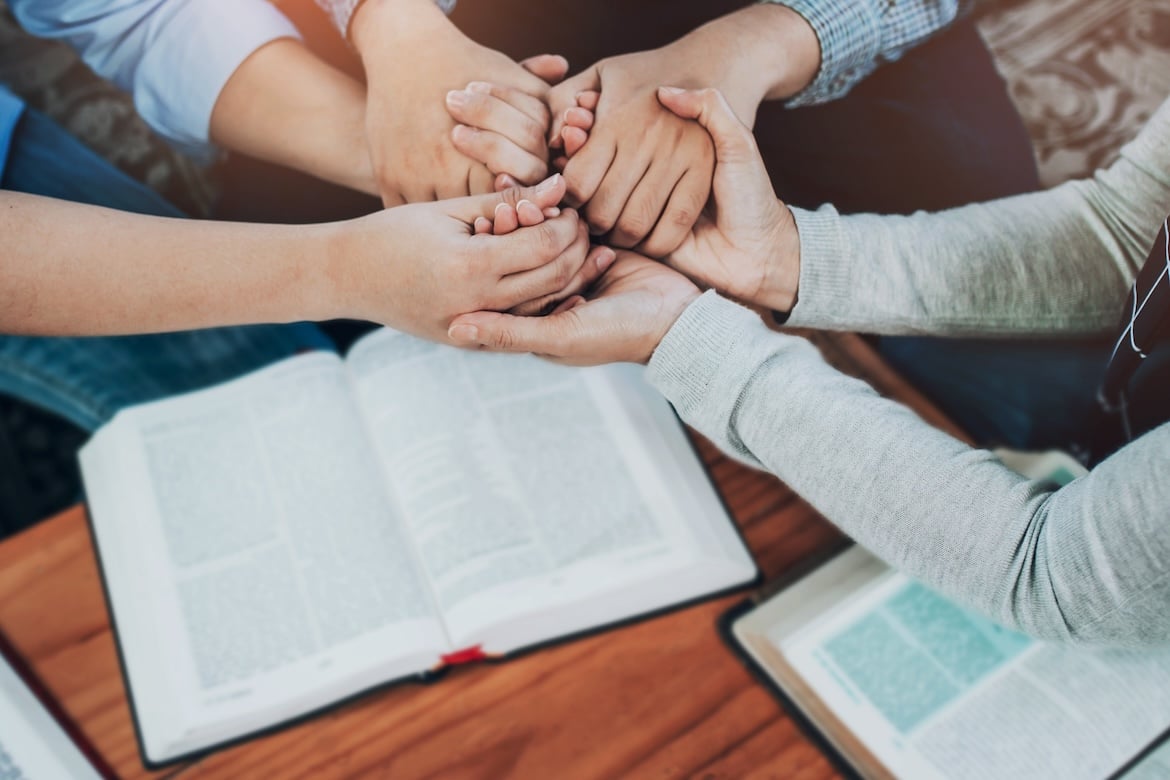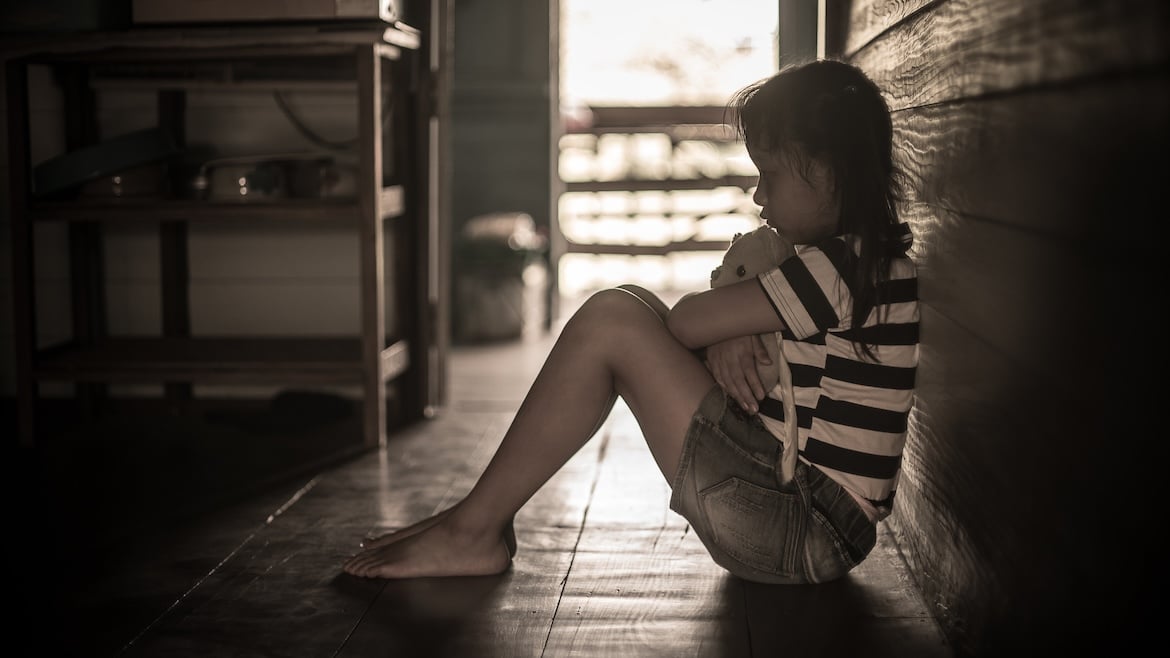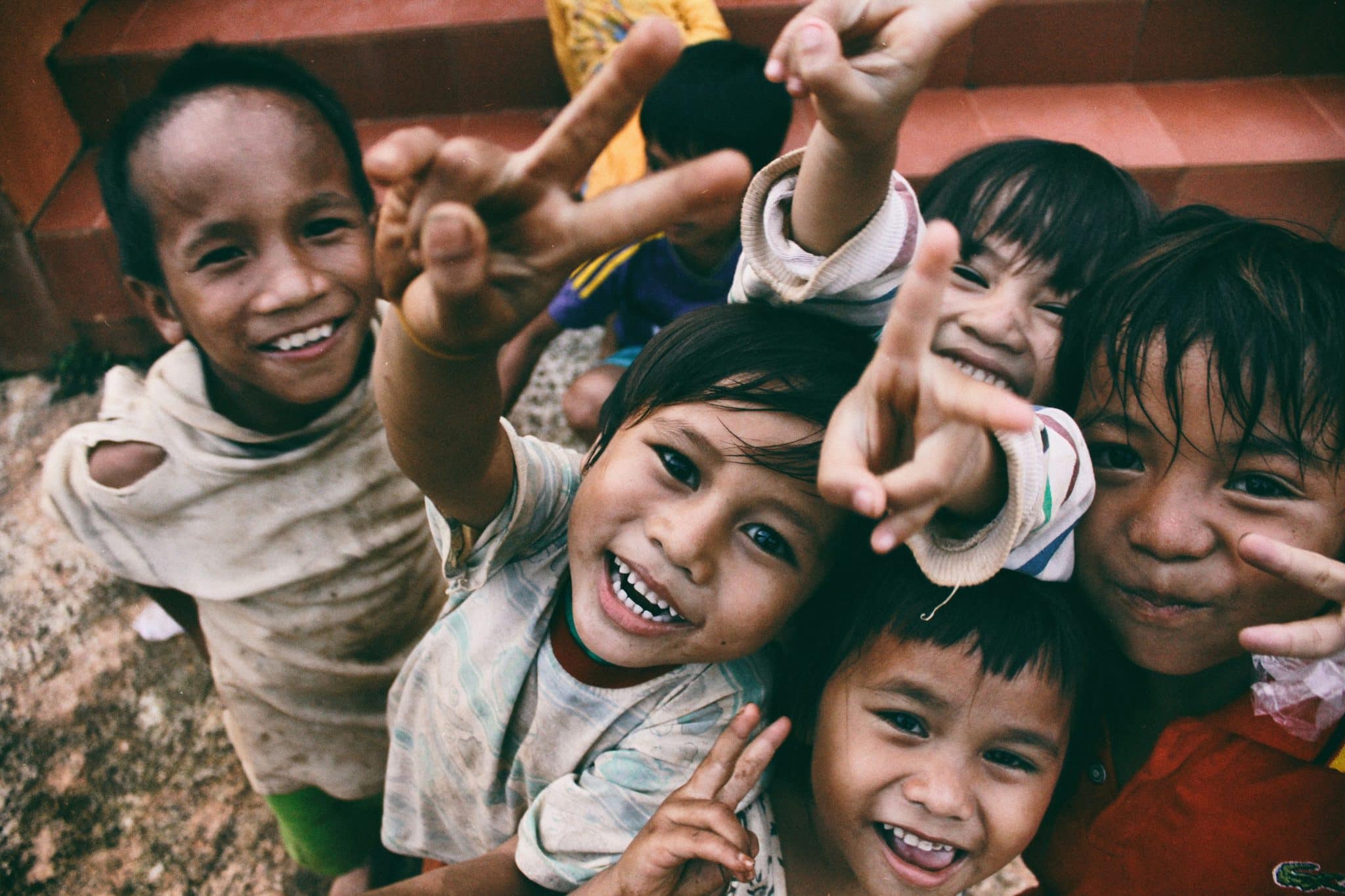
Elise and her husband were active members at church. Yet their church friends did not know that Elise’s husband had been abusing her for years. When Elise could no longer bear her husband’s brutality, she filed for a Personal Protection Order against him. All photos from Depositphotos.com.
Elise and her husband were active members at church. Yet their church friends did not know that Elise’s husband had been abusing her for years.
He kicked her when she was pregnant and put her down with demeaning words, said Kek Seow Ling, a social worker at Lutheran Community Care Services (LCCS) who worked on Elise’s case.
Elise (Seow Ling prefers not to disclose Elise’s real name to protect the latter’s privacy) and her husband were staying with his parents but no one stepped in to stop the abuse, said the social worker.
Christians who worship a just God can no longer look away from family violence destroying lives in homes.
Elise rationalised that her husband’s violence was the result of his mother and sisters doting on him, the only male child in their household, throughout his life.
Some families prioritise sons over daughters, sometimes to the extent of minimising or ignoring their sons’ faults.
When Elise could no longer bear her husband’s brutality, she filed for a Personal Protection Order against him. The physical violence stopped but the emotional abuse continued.
So Elise sought help with LCCS, the community outreach arm of the Lutheran Church in Singapore. LCCS uses restorative practices to encourage people to share their experiences with those whom they feel safe to open up to.
In Elise’s case, she felt that she could speak to her and her husbands’ small group leaders from church because her husband respected them.
Seow Ling guided the leaders on the questions to ask the couple and stressed the importance of letting Elise be heard. The leaders then talked to the couple about the stressors affecting their marriage and the impact of the violence on Elise.
After the talk, one of the leaders followed up with Elise’s husband to support him to change his abusive ways.
Most of the violence has stopped, but the damage lingers on. After two decades of abuse, Elise, who is still married to her husband as she believes that marriage is sacred, suffers from constant fatigue and body aches, said Seow Ling.
Violence behind closed doors on the rise
Elise’s story is not unheard of in Singapore, where the issue of family violence garnered attention following a worldwide surge in cases as the COVID pandemic placed greater stress on families.
Moreover, the small rise in elder abuse has cast light on caregiver stress, and heartbreaking stories of children being abused to death have raised questions about how to better protect young lives from harm.
With society taking more notice of family violence, Christians who profess to worship a just God can no longer look away from the menace threatening and destroying lives in homes.

The issue of family violence garnered attention following a worldwide surge in cases as the COVID pandemic placed greater stress on families.
Answering the call of God to reflect His righteousness (Micah 6:8; Amos 5:24), some believers in Singapore are striving to keep victims safe from further harm and journey with them to heal from their wounds.
Such efforts are timely given that Singapore has seen a spike in reports of domestic abuse since 2020.
Women’s advocacy group AWARE received 180 calls related to family violence in May 2020, a 137% uptick from the same period a year ago.
Victims may see it as their role to “submit” to their violent spouses by forgiving and tolerating them.
From a review of administrative data and self-reported data, the Singapore government found that three to 20% of the population encounter “patterns of violent, threatening, abusive or controlling behaviours within the family, household, current or former intimate relationships, that cause hurt and/or fear for the safety and well-being of people involved.”
In 2009, almost one in 10 (9.2%) women living in Singapore had experienced physical and sexual violence from a man at least once in their lifetime, according to a survey assessing international rates of violence against women.
A decade later, about one in three Singaporeans said that they (10%) or someone close to them (23%) had gone through domestic abuse in a survey conducted by market research company Ipsos and local nonprofit United Women Singapore.
In Southeast Asia, Singapore has a lower rate of domestic violence compared to other cities and countries like Thailand (24%) and the Indonesia (22%).
A 2018 survey by the World Health Organization estimates that 33 percent of women across Asia were victims of intimate partner violence, higher than the global average of 27%.
Efforts to tackle family violence
Taking the rise of family violence seriously, the Singapore government introduced new laws last July to better protect victims, such as expanding the definition of family violence to include coercive, controlling behaviours.
Things that threaten someone’s safety cannot remain private. They must be able to turn to the church for help.
Under the new laws, the authorities have more powers to issue emergency orders in high-risk cases that restrain abusers from carrying out further violence.
These changes came shortly after the government fully repealed the immunity for marital rape.
Last year, a task force formed by the government urged religious organisations to do more in identifying and helping victims. Religious groups in Singapore have established platforms to serve people facing family violence.
These include shelters for abused women and their children run by Muslims and Catholics, and a programme for male perpetrators launched by the charity arm of a syncretic organisation that practices a blend of Buddhist, Taoist and Confucian beliefs.
Christian initiatives include the Anglican Family Centre that provides counselling and temporary accommodation for victims of family violence.

Church peer supporter Deborah Liew Yang believes that the church should have clear and balanced teachings on abuse and on the biblical view of headship and submission, not just over the pulpit but also in marriage preparation courses.
While social workers are ready to help people facing abuse at home, churches are lacking in coordinated effort to deal with the issue, said Christina Liew, an advocate for women and girls.
Up to 20% of the Singapore population encounter patterns of violent, threatening, abusive or controlling behaviours within the family.
Christina, who helped to establish an abuse response team at Redemption Hill Church, also thinks that every church can mobilise its church members to support fellow believers in need.
Zion Bishan Bible Presbyterian Church offered a course last year on providing peer support to people experiencing family violence. About 20 members of the church’s peer support ministry attended.
The ministry aims to equip members to be first responders providing assistance to their struggling peers. Over the years, the ministry has offered training on walking with people who face depression, anxiety, and suicide risk. Last year, it addressed the issue of family violence.
Providing emotional support to others is based on Galatians 6:2 that exhorts believers to bear one another’s burdens and so fulfil the law of Christ, said Deborah Liew Yang, a peer supporter at Zion Bishan.
Participants in the course on family violence learned how to spot signs and symptoms of abuse, listen well to victims, and help victims to explore options for professional help.
Challenges of helping victims of abuse
Helping victims of abuse is easier said than done, for many hesitate to intervene in someone else’s family problems as they do not want to risk breaking up a family by reporting the abuse to the authorities.
But things that threaten the safety of individuals cannot remain private, said Deborah. People in dangerous situations “must be able to turn to the church for help and support… if we are to share lives together.”
In 2023, a task force formed by the government urged religious organisations to do more in identifying and helping victims.
Yet victims may suffer in silence if they do not even realise that they are being abused. They may see it as their role to “submit” to their violent spouses by forgiving and tolerating the latter.
Deborah believes that the church should have clear and balanced teachings on abuse and on the biblical view of headship and submission, not just over the pulpit but also in marriage preparation courses.
For example, when referring to Ephesians 5:21-33 to teach about the roles of the husband and wife, leaders can emphasise how husbands are called to love their wives sacrificially, she said.
Deborah is also part of Zion Bishan’s safeguarding ministry, formed in 2018 to build a safe culture within the church that protects vulnerable lives from abuse or neglect.
Safeguarding ministries are relatively new in Singapore, although the Catholics have adopted safeguarding practices for some years to protect children and young persons from abuse. So have the Anglicans, such as Chapel of the Holy Spirit and St George’s Church.

Some churches in Singapore, like Zion Bishan Bible Presbyterian, have formed safeguarding ministries to build a safe culture within the church that protects vulnerable lives from abuse or neglect.
Some churches reached out to Zion Bishan to find out how they could start similar initiatives in their organisations, said Deborah.
One person who wanted to learn from Zion Bishan’s safeguarding practices was Christina.
Providing emotional support is based on Galatians 6:2 – bear one another’s burdens and so fulfil the law of Christ.
An advocate for women and girls for more than 20 years, Christina held leadership roles in UN Women and Aidha, which provides financial education to migrant domestic workers and low-income women in Singapore.
Christina advocates for abuse victims because she resonates with God’s heart for the weak and broken (Isaiah 42:3). Speaking for women who suffer from violence, she said, “Women are God’s image bearers (Genesis 1:27). Harm done to them is a direct affront to God.”
In 2021, Christina worked with the leaders at her church Redemption Hill to pull together an abuse response team.
The team comprises individuals with professional expertise in counselling and advocating for victims who can assist church members seeking help in instances of abuse. The team also designed and is refining a policy on whistleblowing to report misconduct.
Redemption Hill also equipped its pastors and employees to handle abuse matters using a trauma-informed approach, which helps a person find healing and restoration from past trauma before addressing his or her behavioural problems connected to it.
Overcoming shame and fear
While efforts to tackle family violence abound, so do obstacles.
For one, victims are often reluctant to seek help because of shame. To ask for help means to tell others about problems within the family.
Many victims shy away from sharing as they do not want to air their dirty linen in public and open themselves and their loved ones up to humiliation and criticism by others.
Victims who are high earning professionals tend not to disclose their plight to others out of fear that “they might lose their reputation (and) spoil this image of being capable and successful,” said Seow Ling.
To help individuals overcome the shame of seeking support, connect them with the right kind of people who can understand and help them, suggested Rev Dr Maggie Low, Dean of Students at Trinity Theological College and former pastor of a Presbyterian church in Singapore.
For instance, pair Christian couples with married lay leaders to mentor them. In this way, they can receive appropriate assistance in times of need without experiencing the embarrassment of having a great number of people privy to their problems.
Another way to mitigate the loss of face in asking for help is to persuade Christians that receiving counselling, which may still carry a stigma for some, can be a part of spiritual formation.

Social worker Olivia Lim urged believers to be bearers of light who reach out to victims in their dark circumstances. “You could be the first person to ever listen to their stories and to validate their needs and emotions. You could even bring them a step closer to God.”
Dr Low, who encourages Christians in abusive relationships to seek counselling, said, “There’s no shame in seeing a counsellor. In fact, it’s very positive. It shows that you want to grow.”
Victims may also hesitate to seek help because they are afraid of breaking up their marriage or family. Though divorce is on the rise in Singapore, the stigma attached to it continues today.
A “very big factor” why victims stay in abusive marriages is their children, said social worker Olivia Lim, who saw more than 200 cases of family violence during her six-year stint at a protection specialist centre.
She said: “They don’t want the children to grow up in a broken or divorced family given that many of them (came) from such families in the first place.”
To help victims overcome the shame of seeking support, connect them with the right people who can understand and help.
Christina believes that Christians should “hold a high view of marriage, but not at the cost of a person’s safety and well-being.”
Her statement may contradict that of those who believe that a marriage must be preserved at all cost.
Moreover, some perceive that to divorce would be to sin against God.
Olivia has heard reports from some of her Christian clients that when they shared their problems with their pastors, they received responses such as “there should not be divorce; you should talk about it together (as a couple).”
Such advice is unhelpful as it disregards the fear of the victim towards the perpetrator. It could also put the victim in fear of displeasing God if they were to leave or take a break from the harmful relationship, said Lim.
To Christina, when people deem divorce to be more shameful than harming someone, “there are some big questions that need to be asked. Do we fear man, do we fear embarrassment … do we value the outward semblance of adhering to (Christian ideals of marriage) more than we do the actual (well-being of the person)?”
Men can be victims too
A group of victims who suffer more shame than other victims are husbands who are abused by their wives. Because of the false, prevalent thinking that “men cannot be abused,” they can be less inclined to speak up, said Christina.
Recognising that male victims need a safe space to share their struggles and find support, LCCS ran an eight-week support group program for men in November 2022 and in April 2024.
In their meetings, the men shared their experiences of being abused, their ways of coping with their situations, and their fears, such as losing custody of their children if they were to leave their marriages.
What believers can do
To preserve the harmony of the family, many victims choose to stay in abusive familial relationships.
Believers can help to keep victims safe. “As a church, if you do not want your members to be divorced, are you prepared to support the victim as long as it takes, even if it means opening up your home?” said therapist Benny Bong, a founding member of the Society Against Family Violence, during a webinar on family violence in 2020.
Social worker Olivia urged believers to be bearers of light who reach out to victims in their dark circumstances.
“You could be the first person to ever listen to their stories and to validate their needs and emotions,” she said.
“You could even bring them a step closer to God.”
Where to get help
If you are reading this story and need to get help for yourself or someone you know, call the NAVH helpline or visit your nearest Family Service Centre for help. The following there are some organisations that offer help, shelter, counselling and other services for victims of family violence.
National Anti-Violence and Sexual Harassment Helpline (NAVH)
(24 hours): 1800-777-0000
There is also an online form for reporting if calling is not possible.
Care Corner
6476 1482 (weekdays 10am – 1pm, 2pm – 5pm; except public holidays) or email us at [email protected]
Singapore Anglican Community Services
6586 1064
RELATED STORIES:
Aggressors need help too: Family counsellor Benny Bong answers questions about family violence
“I was scared when my father beat my mother”: World Vision’s poignant peek into domestic violence
Help stop family violence by watching the movie “Call Me Dad”
We are an independent, non-profit organisation that relies on the generosity of our readers, such as yourself, to continue serving the kingdom. Every dollar donated goes directly back into our editorial coverage.
Would you consider partnering with us in our kingdom work by supporting us financially, either as a one-off donation, or a recurring pledge?
Support Salt&Light




